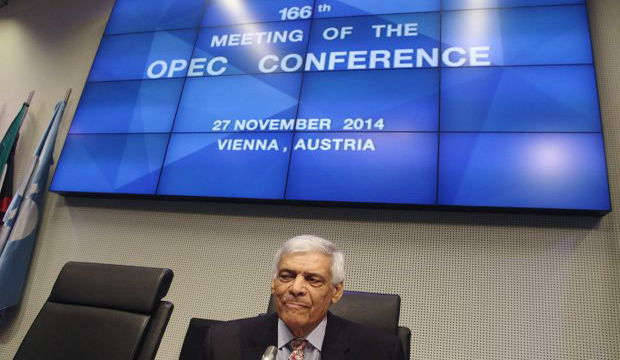By the time this article goes to press, oil prices will have suffered huge losses, approaching fifty per cent of their value of just five months ago. The decline in the price of a vital commodity on which some state budgets depend almost completely doubtless brings back memories of previous oil price collapses, and the great suffering of the people of these countries. The deterioration (if not collapse) of oil prices has overshadowed all other political issues. Energy consumers who have suffered from high oil prices for years are gaining, while producing countries are losing out and watching their revenue projections shrink day by day. Certainly, no oil exporting country wishes for the decline to continue. It is also certain that no one expects oil prices to continue to soar indefinitely. Whether we like it or not, price cycles must play themselves out. The current decline is therefore inevitable. If it were not happening today, there would have been a more serious drop in the near future.
Neither Saudi Arabia—as the member of the Organizations of the Petroleum Exporting Countries (OPEC) with the biggest oil reserves—nor any other country can chart a clear, unshakable path for oil prices. Leaving aside all the recent speculations and analyses, as well as official statements like those of Iranian President Hassan Rouhani who recently blamed an international conspiracy for falling prices, the reasons are purely economic. They are due to weak global economic growth, increasing global supply (particularly from the US), and the diminishing political roles of both Iraq and Ukraine. In addition, Riyadh does not seek to mix its political interests with petroleum policy on the basis that the latter purely a commercial matter. Even if OPEC had decided in its last meeting to lower the output of all members, non-OPEC countries—such as Russia, Mexico, Norway, and Kazakhstan among others—cannot be compelled to follow suit, let alone all of OPEC’s members. On the other hand, one should remember that maintaining output will partially offset falling prices.
With the expected decline in prices next month and dwindling demand, the Saudi government should clearly and explicitly announce its strategy for 2015. There are questions it should answer: how it intends to tackle the continuing decline in price and deal with the government’s allocations for future projects, which are estimated at 519 billion Saudi riyals in the Central Bank? What is the per barrel price of oil on which the government will set next year’s budget (a point previously raised by Abdulrahman Al-Rashed)? According to what criteria can we benefit from huge oil reserves? A host of questions and challenges face all Gulf governments who need to be transparent with their citizens. If falling oil prices are a necessary evil, dealing with it is in the hands of the governments.
Saudi Arabia and the Gulf states have been late in creating their own economic models which move their economies away from a dependence on oil. Despite all the assurances and promises of the five-year plans that—year after year—have evaporated along with the general budget statements, oil remains in reality the cornerstone of state revenues. The private sector remains underdeveloped while the government continues to be the main source of economic activity. The government is the biggest supporter of this formula, despite being the most affected by it. Imagine that!

Trackbacks/Pingbacks